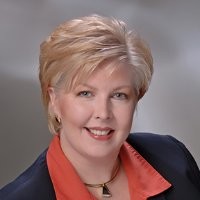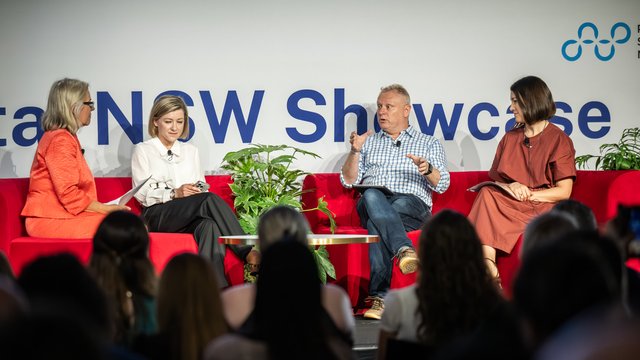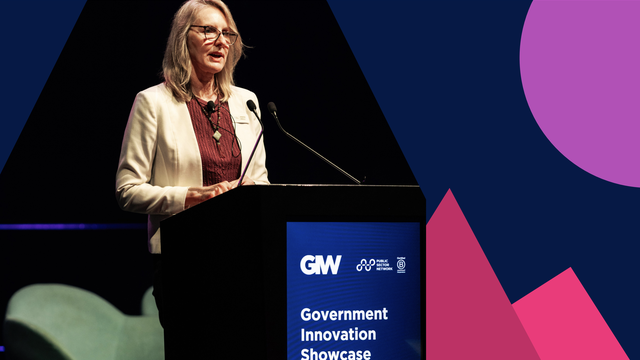As we celebrate Women’s History Month throughout the month of March, as well as International Women’s Day on March 8th – Public Sector Network has engaged with some of the sharpest, creative, and most engaging leaders in the public sector today.
We have designed a series of Women in Leadership Spotlights that we hope will engage, inform, and inspire you to be bold, to think big, and to make positive change. Here, we sat down with Colleen McManus, the Senior HR Consultant & Former CHRO of the State of Arizona:
_______________________________________________________________________
Q1:
Please tell us a bit about what you do, how you got there, and what you love about your work?

I’m a Human Resources executive, and I’ve served in senior level positions in organizations in the private, public and non-profit sectors. I have been a CHRO, COO, executive and consultant. Much of my career has been spent in the public sector working for various state agencies in Arizona. One of my first jobs out of college was in Human Resources. It was a temporary job, and while I had previously never thought about that type of work, I was hooked! What I love about my work is the ability to make a positive difference for organizations and the people who support them. Whether it’s employee learning and development, recruiting great talent, managing compliance with complex employment laws, or helping an employee with a family crisis to make a connection with the EAP, my work is multi-faceted, keeps me challenged, and is very rewarding.
Q2:
As a woman (and a leader) who has spent time in both the private and public sectors, how have you seen things evolve in terms of diversity & inclusivity since your career first began? Where do you feel there is still room to improve?
Much of my public sector career has been spent in para-military agencies, so I became accustomed to environments that were largely comprised of males, particularly in the key leadership and decision-making roles. I learned that if I regarded and presented myself as a professional first and woman second, other people saw and treated me as a professional. When I moved into senior leadership, I had the opportunity to mentor other women and create development programs for all staff in these environments, which helped to bring more diversity and inclusion in leadership roles.
Throughout my career, I have been immersed in efforts and issues relating to diversity and inclusivity (D&I). Years ago, employment laws dealing with sexual harassment, individuals with disabilities and veterans caused employers to broaden their thinking in terms of diversity. However, while we saw positive changes to policies and training to address some of the needs of people in these groups, many employers didn’t feel comfortable promoting more candid discussions on these types of topics. There were concerns about legal liability, political correctness and other sensitivities that kept many employers from doing more than simple compliance. When I became disabled myself as the result of a bad car accident, I became acutely aware of how much more could be done.
In recent years, events in communities across the nation and the world have brought issues around Diversity, Equity & Inclusion (DE&I) to the forefront for employers, and many organizations are now fostering discussions, training, learning circles and other initiatives around the Black Lives Matter movement, the concept of white privilege, the PRIDE movement and LGBTQ rights, salary practices, and second chance employment for those who have been incarcerated. These are very positive developments, and we can’t stop there! We need to keep moving the needle so that ALL qualified individuals have a fair and equal chance to be considered for employment and everything that encompasses. Everyone deserves the opportunity to succeed as their true and whole self!
Q3:
What made you gravitate towards Human Resources within the public sector? What continues to drive your passion for this and how does that manifest itself?

For me, it’s all about service. I felt called to serve at an early age, and I have been blessed to work with many servant leaders who have been inspiring role models. I was drawn to Human Resources because I saw it as providing service within an organization. There is almost nothing so rewarding to me as helping an employee with a serious need find a resolution to a problem or helping an organization overcome a challenge.
Of course, many people are drawn to work in the public or non-profit sectors because we see it as an opportunity to help others. In State government, for example, there are agencies that run parks, or healthcare facilities, or public safety functions, or educational institutions. There are administrative roles, such as HR and IT, and there are essential services roles such as investigating complaints of child abuse or repairing a state highway after a rockslide. Together, we all help to keep our state and local governments moving forward to better the lives of the citizens and taxpayers who are our stakeholders. When I realized I could combine working in HR AND in the public sector, everything came together as the ultimate way I might be of service.
I’ve since discovered other ways to serve, such as training and mentoring other HR professionals, and lending pro bono expertise to organizations and professional associations, to pay it forward in my profession. At the end of the day, it is knowing that I have played a small part in helping our state and the HR profession move forward that continues to fuel my passion for this work.
Q4:
Who is one woman who has been a strong role model for you in your career? Can you explain why, and how, they inspired you or helped you succeed? Concurrently - Why is it important to be a role model for other women in your field and in public service?
I’m inspired by female leaders like Dr. Brené Brown and Madeleine Albright who speak their truth and generously share their wisdom and insights. Brené’s book, Dare to Lead , discusses the need to bring our hearts as well as our heads to work, especially if we are to build cultures with trust and vulnerability. That really resonated with me.
My first female manager was a strong role model for me. She was well prepared for the VP role she held, and I learned so much from the way she conducted herself and the intentional way she spoke with others. She ran the organization’s training function, so she instilled in me a lifelong commitment to continuous learning and development, which I have applied in every setting in which I’ve worked. I observed her diplomatically speaking with others engaging with people in an informative, sincere, and supportive way. She seemed to have so much credibility, and people just gravitated to her! I have tried to emulate many of her qualities in the way I work with people.
Regrettably, I have also worked with others who have been models of what NOT to do in a leadership role! So, I guess you could say I learned more from them about the type of leader I DON’T want to be. This is one of the reasons I feel it’s important to mentor others whenever and however we can. Many great professionals have helped me throughout my career, and I’m committed to paying their investment forward to others. If each next generation of women leaders is learning from the best of their current leaders, imagine how great our future leaders will be!

Photo by Jose Tutivan, sourced from brenebrown.com
Q5:
What advice would you give to the younger generation of women in this field and more broadly within public service? What is one piece of advice you wish someone had shared with you when you were just beginning your career?
I would encourage younger or aspiring HR professionals to obtain education and/or professional certification in the field. The HR field has become so specialized and complex, and legal liabilities abound, so grounding one’s self with the HR body of knowledge is essential. Communication skills are a vital part of the success of any HR professional, and women can sometimes have unique challenges with this. Perhaps they are not taken as seriously, or because they are newer to a leadership role than their male counterparts, they might not have had the same exposure to the type or level of communications required. Female professionals can seek opportunities to develop their communication and presentation skills through networking, mentoring, and participation in groups such as Toastmasters. I once heard someone recommend taking an acting class to develop the ability to speak in public and manage nerves. Now that’s thinking outside the box!
The one piece of advice I wish someone had shared with me when I was younger was to be more patient. In my eagerness to do things the right way, I sometimes put principles ahead of people. Looking back, I see where I might have slighted the “Human” part of Human Resources for the sake of getting thing done, or done the right way. If someone had talked with me about having more patience, I might have realized we could still move things forward, but not at the expense of people or their feelings along the way. Alas, I’m still a work in progress, but hopefully with the benefit of more hindsight now!
Q6:
How has the COVID-19 pandemic impacted your outlook and approach to your work? What key lessons have you learned that you have applied?

This is still evolving for me. We have certainly seen changes in the ways that work can be performed, and I’m grateful for the creativity and flexibility many employers have extended to their employees during this time. Many employers plan to implement more remote work opportunities following the pandemic, and studies are reporting that the majority of employees who were assigned to remote work during this time will want to continue working remotely at least some of the time going forward. That may be one of the most significant changes for many employers in a post-pandemic world.
More employees working remotely have changed the nature of how our leaders work, so I want to ensure that leaders have whatever tools and resources they need to continue to develop, engage and motivate their teams. Resources like LinkedIn Learning can provide additional tools to deliver new knowledge or even refresher training to ensure leaders have the skills they need to work with their remote teams. We have also done much more virtual networking and partnering with others through professional associations to share ideas, best practices, policies, etc. and this has brought new resources and ideas to the table.
I’m thinking and talking with colleagues far more about the mental health and well-being of our workforce than I did before the pandemic. We have yet to see all of the impacts of COVID-19 and the stresses that employees and their families have endured this past year. Staff who have worked on the front lines or lost loved ones to the virus may have even greater stresses and trauma from their experiences. Ensuring that employers have resources and support systems for employees’ mental health needs now, and a long-term strategy to be able to address their future mental health needs, will be an important part of HR services.
Q7:
What does women's history month mean to you?
Women’s History Month is an opportunity to remember and celebrate the women who have come before us and paved the way. I am inspired by so many great women, including Harriet Tubman; Susan B. Anthony; Marie Curie and Clara Barton; Rosa Parks; Indira Gandhi; Mother Teresa; Michelle Obama; Marin Alsop; Jacinda Ardern; and the dedicated young women making history of their own, like Malala Yousafzai and Greta Thunberg. I also admire all of the women who took on Herculean duties to keep their families and communities going during the pandemic. Women stepped up in so many ways by working on the front lines in healthcare or other positions that made life easier for the rest of us. They cared for loved ones and friends who were isolating and sometimes ill, and they took on extended teacher responsibilities for their children who couldn’t go to school. Women’s History Month in the future should DEFINITELY reflect these heroic achievements!
Women have changed the course of history, and taking the time to reflect on the past, celebrate their tremendous contributions and successes, and envision the possibilities for women in the future is important. Discussing this with young women who will be our future leaders is vital to build confidence and inspire them to greatness.

































